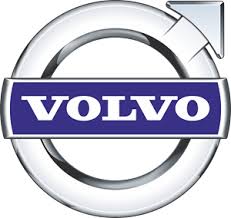How Herballife consider as No. 1 Nutrition food in the World
November 2, 2025
November 4, 2025,6:36:18 PM

Volvo's success story is a fascinating tale of innovation, perseverance, and transformation. Here's a brief overview:
Early Years (1927-1950s)
1. Founded in 1927 by Assar Gabrielsson and Gustav Larson in Gothenburg, Sweden.
2. Initially produced ball bearings, but soon shifted focus to automobiles.
3. Introduced the first Volvo car, the Volvo ÖV4
![]()
in 1927. Innovation and Expansion (1960s-1980s)
1. Introduced the iconic Volvo P1800 sports car in 1961.
2. Developed the three-point safety belt (1959) and rear-facing child seat (1967)
3. Expanded globally, establishing subsidiaries and partnerships.
4. Introduced the 240 series (1974) and 740 series (1982), which became bestsellers.
![]()
Challenges and Transformation (1990s-2000s)
1. Faced financial struggles and declining sales in the 1990s.
2. Sold its aerospace division (1999) and focused on automotive operations.
3. Collaborated with Renault (1993) and Mitsubishi (1999) to improve efficiency.
4. Introduced the XC90 SUV (2002), which revitalized the brand.
![]()
Geely Acquisition and Rebirth (2010s)
1. Acquired by Geely Holding Group (2010) for $1.8 billion.
2. Invested heavily in research and development, electrification, and autonomous driving.
3. Introduced the Scalable Product Architecture (SPA) platform (2015).
4. Launched the XC90 II (2015), S90 (2016), and XC60 II (2017) models.
![]()
Electrification and Sustainability (2020s)
1. Committed to electrify the entire lineup by 2025.
2. Introduced the Recharge concept (2020), with plug-in hybrid and EV options.
3. Aimed to reduce carbon footprint by 40% by 2025.
4. Partnered with Polestar (2017) for electric performance vehicles.
![]()
Today 1. Volvo is a leading premium automotive brand with sales in over 100 countries. 2. Employing over 40,000 people worldwide. 3. Revenue: $27.1 billion (2020). 4. Focus on sustainability, electrification, and autonomous driving. Volvo's success can be attributed to: 1. Innovative spirit 2. Adaptability and resilience 3. Strategic partnerships 4. Commitment to safety and sustainability 5. Strong brand identity Sources: ¹ Volvo Group - History ² Volvo Car Group - About Us ³ Forbes - Volvo's Transformation ⁴ Automotive News - Volvo's Electrification Plans
![]()
Volvo offers a wide range of products across various categories, including
Passenger Cars: 1. XC90: Luxury SUV 2. XC60: Compact Luxury SUV 3. XC40: Compact SUV 4. S90: Luxury Sedan 5. S60: Compact Luxury Sedan 6. V90: Luxury Wagon 7. V60: Compact Luxury Wagon 8. S80: Luxury Sedan (discontinued)
Electrified Models:
1. XC90 Recharge: Plug-in Hybrid SUV 2. XC60 Recharge: Plug-in Hybrid SUV 3. XC40 Recharge: Electric SUV 4. S90 Recharge: Plug-in Hybrid Sedan 5. S60 Recharge: Plug-in Hybrid Sedan
![]()
Commercial Vehicles:
1. Volvo Trucks: Heavy-duty trucks (FH, FM, FMX) 2. Volvo Buses: City buses, Coach buses, Hybrid buses 3. Volvo Construction Equipment: Excavators, Wheel Loaders, Articulated Haulers
![]()
Marine Engines:
1. Volvo Penta: Marine engines, outboards, and sterndrives Industrial Engines: 1. Volvo Penta: Industrial engines for generators, compressors, and pumps
Safety Features:
1. City Safety (autonomous emergency braking) 2. Pilot Assist (semi-autonomous driving) 3. Run-off Road Protection 4. Whiplash Protection System (WHIPS) 5. Blind Spot Information System (BLIS)
![]()
Technology:
1. Sensus Infotainment System 2. Volvo On Call (connected car services) 3. 360-degree camera system 4. Park Assist Pilot Concept Cars: 1. Volvo Concept Coupe (2013) 2. Volvo Concept XC Coupe (2014) 3. Volvo Concept 26 (2016) 4. Volvo 360c (2018)
![]()
Volvo has a significant presence in India, with a state-of-the-art manufacturing facility located in Hosakote, Bangalore. This plant, which began operations in 1998, is the first European truck manufacturing plant in India and produces a wide range of Volvo trucks, including the Volvo FMX, Volvo FM, and Volvo FH ¹. Key Features of the Hosakote Plant: - Assembly Line:
![]()
The plant has a well-established assembly line that meets ISO 9001 and 14001 standards for quality and environmental management ¹. - Production Capacity: The plant has produced over 15,000 Volvo trucks and has a distribution centre that stocks and handles over 35,000 parts ¹. - Certifications: The plant is certified for quality management (ISO 9001) and environmental management (ISO 14001) ¹. Additionally, Volvo also has a car manufacturing plant in Bengaluru, India, which started production in 2015 and produces models such as the S90, XC40, and XC90 ²
![]()
.Volvo's turnover isn't explicitly stated, but we do know that in 2023, the company's assets reached 674.068 billion Swedish kronor, and its equity was 180.739 billion Swedish kronor ¹. To give you a better idea of Volvo's financial performance, here's a breakdown of their revenue streams: - Trucks and Services: 62% of their revenue comes from trucks and services related to them ¹ - Construction Equipment: 25% of their revenue is generated from construction equipment ¹ - Buses: Buses account for a smaller percentage of their revenue ¹ - Marine Engines: Marine engines also contribute to their revenue, although the exact percentage isn't specified ¹
© 2024 Iconsofindianbusiness.com. All Right Reserved.